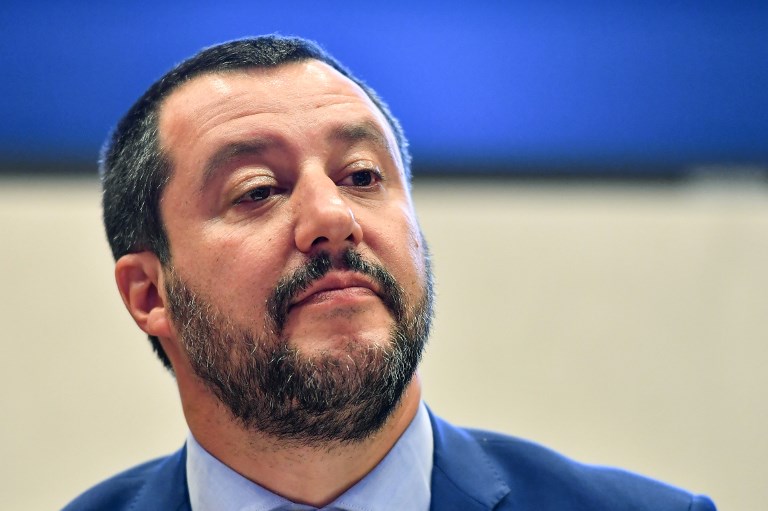Italy defies Europe with new Budget proposal
September 30, 2018 | Expert Insights

Rome has announced a new budget deficit target of 2.4% of GDP and aims to expand government spending on welfare.
The new target is in violation of the deficit limit set by the EU on countries like Italy, which have high national debt.
Background
Italy is a unitary parliamentary republic in Europe. It is home to 61 million inhabitants. The country is the fourth most populous EU member state. Historically, Italy is perhaps best known for being the origin of the Renaissance. Italian culture flourished at this time, producing famous scholars, artists and polymaths such as Leonardo da Vinci, Galileo, Michelangelo, and Machiavelli. It was a period when great strides were made in science and art. It was also during this era when Italian explorers such as Marco Polo, Christopher Columbus, Amerigo Vespucci, and Giovanni da Verrazzano discovered new routes to the Far East and the New World.
Present day Italy is known as a vibrant tourist destination in Europe. It is the 3rd-largest national economy in the eurozone, the 8th-largest by nominal GDP in the world. Italy is also the eighth largest exporter in the world. In 2016, its nominal GDP was $1.850 trillion. Italy conducted 59% of its trade with other nations in the European Union.
Italy has also been influenced by the growing wave of nationalism and the 2018 General Elections saw the anti-immigrant, right-wing coalition led by Matteo Salvini and Luigi Di Maio come to power. The Centre-Right Coalition has been critical of the EU, been labelled as openly EU-sceptical and has been noted to be soft on Russia for its alleged meddling in foreign elections.
Analysis
The announced target for Italy’s 2019 budget deficit is pegged at 2.4% of its gross domestic product — and it suggests that the new Italian coalition will spend far more aggressively than its centre-left predecessor. It also indicates the government’s leaders are willing to unnerve markets and even defy European fiscal rules for the sake of attempting to do what they said on the campaign trail: upend the norms in a nation whose economy has flatlined for two decades.
It was partly the frustration over that stagnation that helped drive Italy away from mainstream politics and toward a coalition of two parties that have offered to crack down on immigrants and generously expand the welfare state. Some in Europe had held out hope that more cautious voices inside the Italian government, including the country’s economy minister, would win out in debates over such expansions. But the opposite happened in deliberations that ended Thursday night.
The new budget-deficit target seemingly breaks a European requirement that deeply indebted countries work to reduce their burden. However, other countries, including France, have violated European fiscal rules in the past and had no major consequences.
However, economists and analysts have said Italy presents a novel case, in large part because its challenge to Europe seemed more intentional and politically calculated. Italy’s politicians have bashed Brussels bureaucrats and said their restrictions are counterproductive.
Fears have eased from earlier this year that Italy might exit the eurozone altogether. However, investors have remained anxious about the management of Europe’s fourth-largest economy. On Friday shares of Italy’s major stock index tumbled 3.7%, its worst day in more than two years. Investors worried Italy could be in store for credit rating downgrades. In the worst scenario, Italy could push Europe into another perilous phase in which it is dealing with the teetering banks of a country with a high public-debt load.
The problem for Italy’s populists is that the country is not growing fast enough to pay for their proposed expenditures. The International Monetary Fund expects the Italian economy to grow 1.1% in 2019, at half the pace of that of other advanced economies. Italy’s debt is about 130% of its gross domestic product, a ratio that is second in Europe only to Greece.
Counterpoint
Despite its defiance of EU budget targets, Italy’s government leaders said their planned budget target would allow for many of their political goals, including tax cuts, a lowering of the retirement age, and a basic income for the poor — one of the flagship proposals of the Five Star Movement. The Five Star’s leader, deputy prime minister Luigi Di Maio, fired off a series of jubilant Facebook posts on Thursday night and said Italy was “erasing poverty” and “giving back dignity” to retirees.
Assessment
Our assessment is that Italy is on the verge of political instability. The politics of populism is negatively impacting Italy’s economic situation and the budget deficit will have long-term consequences on an already indebted country. We believe that the EU is not likely to punish Italy for its violation of the deficit limits.








Comments